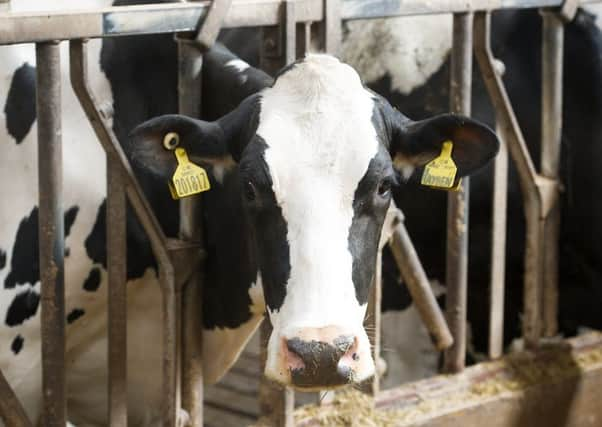BSE regulations '˜might be lifted in coming months'
This article contains affiliate links. We may earn a small commission on items purchased through this article, but that does not affect our editorial judgement.


George Milne, Scottish regional development officer with the National Sheep Association, said that following an application last year by the Scottish Government to Europe to lift the restrictions, there was now hope this would actually happen in May.
Scotland has actually been free of BSE for a number of years but has not managed to shake off the regulatory burden of still having a problem with it. Now, he said, the authorities in Brussels were on the verge of removing this barrier to opening up trade.
Advertisement
Hide AdAdvertisement
Hide AdSpeaking to NSA members this week, Milne said there would be a number of advantages to the red meat sector. Meat processors would see a big reduction in their costs, meat products with bone in them could again be sold and there should also be a boost to exports to new countries which have been scared off by the BSE tag.
Earlier, Milne had stressed the danger that lamb and sheep meat might be sidelined in trade negotiations after Brexit.
“We cannot afford to have the sheep industry ignored in trade talks,” he claimed, adding that the Scottish “red meat sector was very vulnerable in trade negotiations”.
He was also concerned that UK farm minister George Eustice had floated the idea that future public support for the livestock sector might be based on animal welfare grounds.
“Welfare is a dangerous word, I don’t like it. I prefer animal health. There are lots of potential benefits in basing future support to improving animal health. Apart from anything else such a programme will help improve efficiency.”
Looking forward, he was concerned about the future funding of the Less Favoured Area Support Scheme (LFASS), which currently puts millions of pounds of subsidy into some of the more remote areas and islands in Scotland. Continuation of this support into farming in these areas was vital for the rural economy of Scotland, he argued.
While it looked as if the UK would use a derogation from the EU to prevent changes having to be made from LFASS into Areas of Natural Constraint, Milne said there was still a real possibility support might be diminished in a post-Brexit world.
Advertisement
Hide AdAdvertisement
Hide AdIn this robust defence of support in the hills, he was supported by the newly elected NSA chairman, John Fyall. “This is one of my main priorities,” he claimed.
After taking the tenancy of the small farm of Sittyton, Newmacher, in 2009, Fyall has built up a small sheep flock in the organic unit along with a herd of pedigree Shorthorn cattle.
He also takes annual grazings where he buys ewe lambs in the Spring prior to selling them in the Autumn as gimmers.
Both speakers spoke strongly on the need to promote the sale of lamb.
